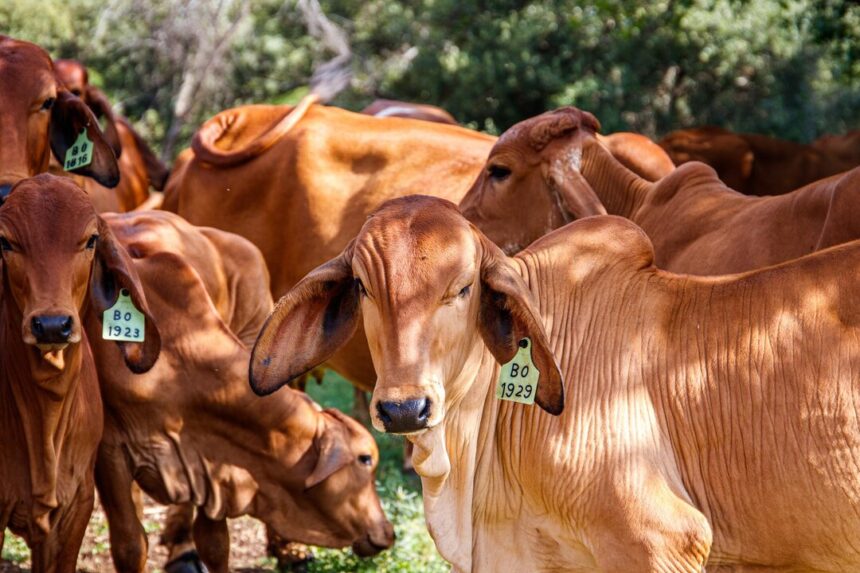Boran cattle, known for their adaptability, resilience, and superior genetics, have become increasingly popular among livestock farmers in South Africa. Renowned for their heat tolerance, disease resistance, and excellent maternal instincts, Boran cattle offer numerous advantages for both commercial and stud farming operations. In this article, we’ll explore ten essential things you should know about breeding and farming Boran cattle in South Africa, covering key aspects such as breed characteristics, breeding strategies, and management practices.
- Origin and History:
Boran cattle, originally from the Horn of Africa, were introduced to South Africa in the early 20th century. Bred for their hardiness and adaptability to harsh environmental conditions, Boran cattle have become prized for their superior genetics and performance traits. - Breed Characteristics:
Boran cattle are characterized by their distinctive red or brown coat color, short sleek hair, and distinctive lyre-shaped horns. They have a muscular build, with strong legs and feet, making them well-suited to extensive grazing and rugged terrain. - Adaptability and Resilience:
One of the key attributes of Boran cattle is their adaptability and resilience to various environmental challenges. They thrive in hot and arid climates, withstanding heat stress and water scarcity better than many other cattle breeds. - Disease Resistance:
Boran cattle are known for their natural resistance to common cattle diseases such as tick-borne diseases, foot rot, and heartwater. Their robust immune systems make them less susceptible to disease outbreaks, reducing the need for intensive veterinary interventions. - Maternal Instincts:
Boran cows exhibit excellent maternal instincts, making them reliable mothers and caregivers to their calves. They have a strong protective instinct and are known for their ability to raise healthy and robust calves even under challenging conditions. - Breeding Strategies:
When breeding Boran cattle, it’s essential to focus on selecting animals with desirable traits such as fertility, adaptability, and growth potential. Breeding programs often incorporate performance testing, genetic selection, and pedigree analysis to improve herd genetics and productivity. - Commercial Potential:
Boran cattle are highly sought after for both commercial and stud farming purposes. They are valued for their meat quality, reproductive efficiency, and adaptability to extensive grazing systems. Boran beef is known for its excellent taste, tenderness, and nutritional value. - Environmental Sustainability:
Boran cattle play a vital role in sustainable livestock production systems, particularly in semi-arid and marginal lands where other breeds may struggle to thrive. Their ability to utilize sparse vegetation and withstand harsh environmental conditions makes them valuable assets for ecological conservation and land management. - Management Practices:
Effective management practices are essential for optimizing the productivity and welfare of Boran cattle. This includes providing adequate nutrition, access to clean water, routine health monitoring, and implementing sustainable grazing and herd management strategies. - Market Opportunities:
The growing demand for quality beef and breeding stock presents lucrative market opportunities for Boran cattle farmers in South Africa. As consumer preferences shift towards ethically raised, grass-fed beef, Boran cattle are well-positioned to meet market demand for premium-quality meat products.
Breeding and farming Boran cattle in South Africa offer numerous benefits for livestock producers seeking resilient, adaptable, and high-performing cattle breeds. With their exceptional genetics, environmental adaptability, and commercial potential, Boran cattle play a vital role in sustainable agriculture and livestock production systems. By leveraging the unique attributes of Boran cattle and implementing sound breeding and management practices, farmers can enhance productivity, profitability, and resilience in their livestock enterprises, contributing to the long-term viability and sustainability of South Africa’s livestock industry.
Join 'Farmers Mag' WhatsApp Channel
Get the latest Farming news and tips delivered straight to your WhatsApp
CLICK HERE TO JOIN






